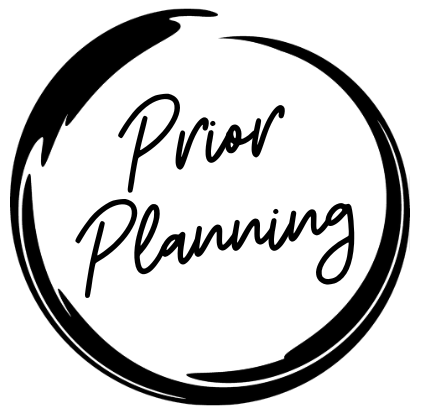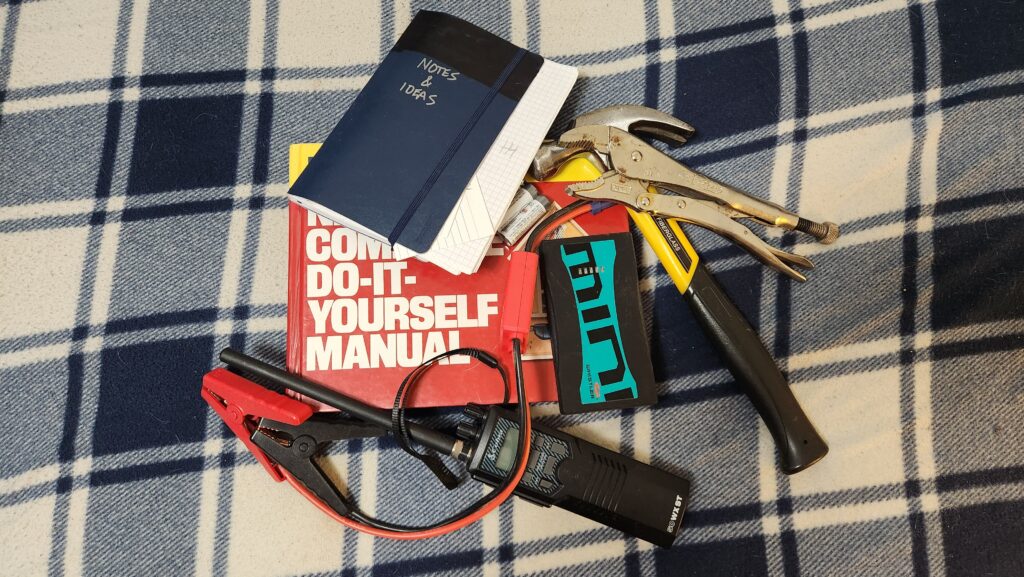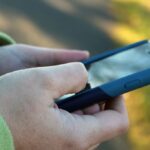Let’s talk about what this site is and isn’t about.
What’s this about?
At its very basic, this site is about teaching people the skills needed to thrive under pressure, be it a natural disaster or just smoothing out the bumps and bruises of “regular” life.
Back in 2021, during a nasty winter, I watched friends of all ages struggle. From power losses in Texas to a person my age who didn’t have enough food in their home to even manage a couple of days, I witnessed a catastrophic loss of knowledge playing out in front of me. I helped where I could, but I was well out of range of these folks to be able to take direct action.
Fast-forward a few years, and I kept thinking about what happened, and how much I learned from my Mom about handling a natural disaster. In addition, having lived around the country, I have experienced floods, blizzards, hurricanes, tornadoes, and earthquakes. Collect a full set! While each of these come with their own challenges, there are many things you can do prior to an event to prepare. Thus, “Prior Planning”.
The goal is to be able to comfortably handle a week’s worth of “crisis mode”. And we do not just want you to survive, but THRIVE in such conditions. Preferably in reasonable comfort!
What is this NOT about?
First and foremost, this is not a blog about The End Of The World As We Know It* (TEOTWAWKI) and/or being a ‘prepper’. There’s plenty of those out there and they do not directly address what we’re trying to do here, with is to build up people’s resilience to crisis. In addition, preppers tend to favor ‘rugged individualism’ and isolation over community and that’s directly the opposite of our ethos here. Preppers also frequently lean into the concepts of firearm ownership. While we may touch upon that here, it is not going to be a primary focus.
It is also not here to sell you stuff. We may link to products and such, and we certainly stand ready to offer our experience and services to folks, but that’s not the focus. We want to take what we know and put it into the public consciousness. We may also link to other sites and blogs which we think will also be helpful.
Finally, we’re also not here to lecture anyone. No one wins in that situation, and knowledge will not be successfully passed on. Everyone has different needs, resources, capability, and capacity to do things. To use the spoon metaphor, some of us have a full drawer of spoons, and others wake up with a single spoon to their name. We’ll do our best to walk folks through increasing their resilience as affordably as possible, but the best solution is always to build your local community and connections to others nearby.
*and I feel fiiiiiiiine
Thrive versus Survive
Survival is very basic. The idea is to make it through a crisis with the least amount of damage, be it physical or mental. Survival is frequently traumatic, and can leave lasting scars as well as taking extended time and resources to recover. We want you to be able to thrive in such situations. Are we saying you’re going to have the time of your life in the middle of that hurricane? Heck no. But, with planning, you can be much more resilient. And that will enable you to come out the other side in reasonably good shape. And once your foundation is in place, you can start to help others thrive as well.
Community is key
At the core, you need to embrace and build your community. This means getting to know your neighbors, for several reasons not necessarily good, as well as connecting with community support resources and being able to lend a hand to them when times are tough. Working with your local library, food bank, and other town services will not only help you, but in helping others you will make the connections you can use when you need aid.
As the saying goes, “knowing is half the battle”. It turns out the other half is putting that knowledge into practice.
Politics, politics, politics!
This blog is for everyone. While we certainly have our opinions, we’re not here to play that game. The information and experience we wish to share is for anyone who finds themselves in a crisis such as a natural disaster. What we will NOT tolerate is anyone attempting to play the politics card, victim blame, or suggest that where someone lives is a reason to deny them aid. We are all in this together, and we are stronger when we stand with each other. That’s part of building community and resilience.
Two is one, one is none
This is kind of the basic ‘rule’ of planning ahead. Two people can get more done than one. Going it alone is much, much harder. Having two copies of something is better than one. Having two sets of tools, etc. Frequently, acquiring two of one thing is almost as affordable as buying just one.
A second set of tools can be loaned out to someone in need.
Basic Terminology
This will probably be expanded into a full post, but here’s a list of things we may refer to in these blog posts.
- The 5 P’s – Prior Planning Prevents Poor Performance
- 5 C’s – Cutting, combustion, Cordage, Container, Cover
- EDC – Everyday Carry
- Bugout Bag – A bag which allows you to evacuate in safety
- SHTF – Shit Hit The Fan
- TEOTWAWKI – The End Of The World As We Know It
- MRE – Meal, Ready to Eat
- FRH – Flameless Ration Heater
- FEMA – Federal Emergency Management Agency
- “The Grid”/Off-Grid – Access or lack thereof to power, water, internet, etc.
- Food Insurance/Security/Food Deserts – The availability of food and water
- Prepper – Someone who plans for the end of the world
- Homesteading – Frequently confused with being a Prepper, this is more about being self-sufficient.
- Between the Lines – Information aimed at marginalized people as well as folks in direct danger.



